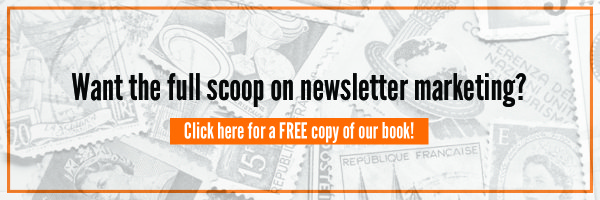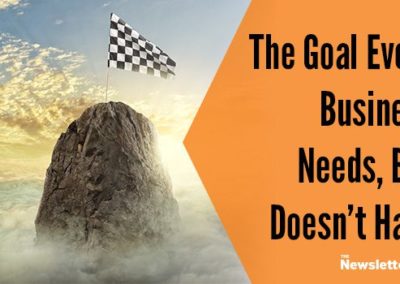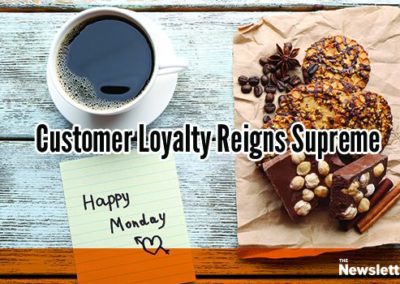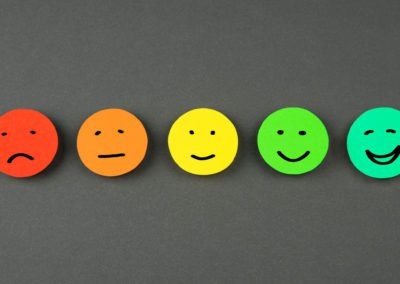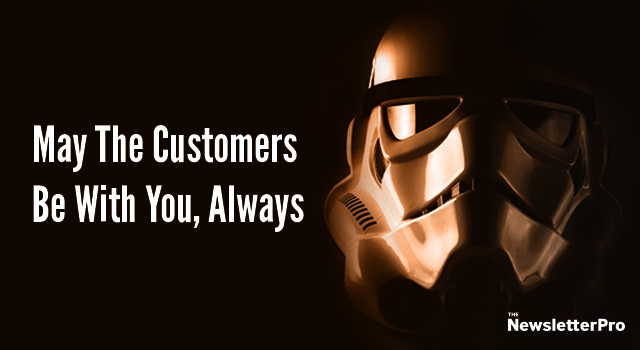
A long time ago in a galaxy far, far away …
You know the familiar blue text as it silently rests on black. Your anticipation builds. You know what comes next.
The triumphant horns blare.
The bold yellow words appear.
They scroll up the starry screen.
This isn’t just a movie.
This is an event.
Pan down.
The Force is Strong with This One
For the past 38 years, Star Wars has captured the imaginations of millions of people across the globe. The original concept of a hero’s galactic destiny went from a rudimentary sci-fi fantasy film with a relatively low budget of $11 million (compared to the average $200 million blockbuster budget today) to become one of the most recognizable and profitable brands around.
At the brand’s mythological core, consumers have been buying the same thing over and over. The heroes, villains, sidekicks, and spaceships have been repackaged in books, comics, apparel, toys, video games, and more since 1977. The list of products bearing the Star Wars logo is far too long to list. We’re constantly introduced to new names and faces with every passing film, book, or video game, but conceptually, it’s all the same.
We’re going in circles, and yet people keep buying it.
Think about it: After nearly 40 years of Star Wars and its cyclical story of good versus evil, people aren’t burned out by the brand (with the exception of Anakin Skywalker).
There is a critical lesson to be learned by every business owner and brand purveyor who keeps customers coming back for more — even when that “more” is just the same thing they’ve been selling since day one.
It comes down to the answering the question: How can a brand or business avoid customer burnout?
The Droids Brand Your Customers are Looking For
 This question goes hand-in-hand with the concept of customer attrition. There are a lot of businesses out there that have basically sold the same product, or one core product or service since day one. They’re specialized or lack diversity in their offerings, only changing over time to meet new standards, regulations, or efficiencies. That’s simply the nature of certain niches and industries.
This question goes hand-in-hand with the concept of customer attrition. There are a lot of businesses out there that have basically sold the same product, or one core product or service since day one. They’re specialized or lack diversity in their offerings, only changing over time to meet new standards, regulations, or efficiencies. That’s simply the nature of certain niches and industries.
Some of these businesses survive on the virtue of limited or no competition. Other businesses survive on the fact they provide stellar customer service. Then there are business that thrive on a little of both. Regardless, there’s always a risk of losing customers.
One of the most common reasons customers get burnt out by a business is due to a poor customer service experience. In fact, 78 percent of consumers won’t make intended purchases based on a poor customer service experience — nothing will lose you a customer faster. It might be a single, isolated incident or a recurring problem.
For the Star Wars brand, there have been times when consumer faith was shaken. Many people vocalized (and continue to vocalize) disdain for the 1999 – 2005 prequels and the updated versions of the original trilogy.
In the case of the prequels, many loyal fans were left confused and disappointed by Episode I. In the spring of 1999, hype for the movie exploded, and at the same time, no one really knew what to expect.
When people aren’t happy with a product or service, you can bet they’re going to tell the rest of the world about it. In the past, they may have vocalized their dissatisfaction to a core group of people, including family and friends. While Americans will spread the word of a good customer experience to at least eight people, they’ll tell at least 16 people about a bad one, according to the 2014 American Express Customer Service Barometer.
A Disturbance in the Force
 When the Star Wars prequels were released, the way we communicated was going through a transformation. Social media was represented by message boards and chat rooms. The instant gratification and response from posting on Facebook and Twitter was still primordial.
When the Star Wars prequels were released, the way we communicated was going through a transformation. Social media was represented by message boards and chat rooms. The instant gratification and response from posting on Facebook and Twitter was still primordial.
Now, the online landscape has changed. When a business makes a customer service blunder, it can be on social media, shared, and re-shared in a matter of minutes. One dissatisfied (and potentially lost) customer can snowball into a much larger customer service nightmare.
In the case of Star Wars, the three prequels still grossed billions of dollars despite backlash from fans. The brand marched on, seemingly unhurt by the lack of goodwill it displayed toward moviegoers. Director George Lucas seemed bent on creating nothing more than a massive commercial for his merchandising empire rather than telling a good story.
And that’s exactly where the prequels succeeded, or at least contributed to a major part of the brand’s overall success. While one part of the brand may have delivered a questionable customer service experience, other parts of the brand more than made up for it.
But there’s another detail people often forget. For every fan who grew up on the original trilogy and may have left Episode I, II, or III in absolute disgust, there were four kids who left the theater excited and ready to recreate their favorite scenes the second they got to the car. The prequels appealed to a new generation of fans.
This is a struggle a lot of businesses face with customer attrition. When one customer leaves, how can you bring in a new customer, or two, or three, to replace the one you lost? It’s a challenging question to answer.
As an entrepreneur, George Lucas was very in tune with the younger audience of the time (much to the chagrin of older fans); because of that, the prequels succeeded. They offered a thrill ride for the younger crowd. He catered to them.
You can do the same. You may have something to offer new customers that you simply can’t offer existing or former customers. New customers are still learning how you operate, you just have to figure out how to offer that “thrill ride” — and that can be the real challenge.
You can also work to inspire brand loyalty. Another big reason customers leave business is because you failed to make the connection — to deliver a wow experience — and give customers a reason to stick by you. And perhaps the Star Wars brand is one of few that can under-deliver (in the case of the prequels) and still come out on top with the help of a significant factor like brand loyalty.
Han Shot First, So Should You
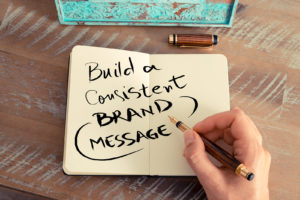 This is also a big reason why the Star Wars prequels did so well in the face of fan backlash. Star Wars fans, while an occasionally vocal bunch, are incredibly loyal to the brand, perhaps to a fault. The original trilogy delivered such an amazing and unforgettable experience that people were willing to stand by the brand, even when they had no real reason to do so.
This is also a big reason why the Star Wars prequels did so well in the face of fan backlash. Star Wars fans, while an occasionally vocal bunch, are incredibly loyal to the brand, perhaps to a fault. The original trilogy delivered such an amazing and unforgettable experience that people were willing to stand by the brand, even when they had no real reason to do so.
Loyal customers can be your best friend. They not only stick by you through the best of times, but they’ll be there during the worst of times. Not only that, they’re more than willing to rally and inspire others to give you a try.
And that’s when you deliver your “wow” experience. When a new face walks through your door, make a first impression that will last 38 years and beyond. That is your chance to get ahead of customer attrition.
That means you have to be ahead of the competition when it comes to customer service. You have to create and maintain a perception of amazing. What that looks like varies from business to business.
It may mean always having their favorite product in stock. Offering a few minutes to talk about life. Being that place where customers feel like they’re part of your family. Or it might come down to keeping in touch with your customers with a monthly newsletter, which keeps your business and your customers’ place in it top-of-mind.
